Welcome back to De-Stigma Dialogues on this penultimate episode of our inaugural season! Fancy right! So anyway, this episode I am aiming to come to a place of pause in our discourse on Feminism. Last week was a lot; we delved into the syndromes, paradoxes and myths that surround this stigma. To revise, I spoke about the apologising gene (which I can happily attest becomes more recessive with each new generation, thankfully), perpetually expected gratitude, the Calm Down syndrome, the myth of sisterhood, the pick-me paradox and the likeability default…don’t worry, I’m not going to rehash these. Those just joining the conversation, please check out last week’s episode and newsletter and reach out, let’s chat. Moving on, this week I wanted to explore a few other things starting with the illusion and reality of female empowerment and its role in feminism.
In an earlier episode, I spoke about this particular industry (female empowerment) and who it really benefitted. Last year, we had the Barbie movement, which saw an evolved narrative given to a toy, historically used to control and empower girls. Empower by giving Barbie multiple occupations, occupations that at times, many women were still unable to access in reality. Control by making Barbie exclusively thin, blonde and ‘pretty’, you know, beauty standards being what they were in the 50’s. I will admit to a couple things here, I played with Barbie and Sindy dolls (Barbie’s UK Equivalent) and I loved them. As a black little girl in the Caribbean, they were the ultimate toy. It didn’t occur to me that I was being systemically conditioned to subscribe to society’s idea of beauty. Just as I didn’t recognize the babydoll toy I was given before Barbie or Sindy was a tool of conformity, subconsciously given to prepare me for the role of mother that was assigned with my extra X chromosome. As I got older and I put away toys, and started expanding my education, my eyes were open to the role of toys in our society.
Much like fairy tales, these items are instrumental to the crafting and perpetuation of society’s narrative and the roles that they have assigned to us. It’s one of the primary reasons so many have been and continue to be up in arms about the toys our children play with, and how they are gender coded, which by the way is a glimpse of recognition by the patriarchy of its methods of control. Thing is the more I learned the more disenchanted I became with Barbie. How does the saying go, as you get older you put away childish things? Anyway, Barbie barely registered in my thoughts or memories, by the time I had my daughter. Those convictions of my youth (remember feminist adjacency) were so far in the past that I didn’t even think twice about buying the baby doll and all its contraptions when her pudgy little fist reached for it. As she got older, through birthday presents, came the dreaded Brats doll era though my daughter quickly abandoned those, in favour of lego sets. My point is, when I was learning about feminism, my eyes were opened to all the ways that women were controlled but as I started living in this society, I very easily slipped into slumber and reverted to the conditioning of my youth. It is how I was able to subconsciously start conditioning my daughter. I started trimming her wings in preparation for a life that I didn’t want her to have.
Along with the toys and the adages that I repeated to her from my youth, came the conflicting messages of girl power and you can do anything you want in this world and this life. See when I started rebelling against Barbie, I rebelled against the overt ‘controlling’ part as far as the depiction of society’s beauty standards in a doll (I know the brand grew more inclusive and better designed especially for the ‘black’ dolls but I am referencing an earlier time). I didn’t recognise that the empowering part was also a form of control. By giving Barbie multiple professions, the patriarchy dangled the proverbial carrot before our eyes crafting this illusion that as women we too can do all these things in theory, in Barbieland, in play but not in reality. It is why Barbie is just a toy. When the movie came out, I was not interested. My daughter tried to get me to see it but I shut that down. I had already started living and embracing my feminist identity and I didn’t want to see a movie about a perfect doll, even as satire. America Ferrara’s infamous speech that played like an ear worm on every media platform felt heavy handed. I had seen and heard and read many other iterations of the same speech done more eloquently and subliminally. I just wasn’t interested in seeing feminism used as a hammer. Come awards season and of course the movie had to be recognised but not that much as the patriarchy had the final word and it was pummelled by the male-centric Oppenheimer, duh. PS. this is a disclaimer: I am not saying Oppenheimer is not deserving, I don’t know, haven’t seen it and not interested. I do however find it curious that such a male centric film would be released at the same time as one whose focus is on women in a battle for the boxoffice and awards. I mean they did it again this year with the releases of Wicked and Gladiator 2. I may explore that more for the Reviewblr publication… Anyway, I digress, where was I, oh yeah awards season… after awards season, along came this podcast and of course I realised that I have to watch this movie. I mean it is one of the more current examples of a feminist forward film. Something you should know about me is that I will always admit if I am wrong… I was wrong about the Barbie Movie.
I’m not going to turn this part into a review but it is a prolific examination of women in our society and the patriarchy and the controlling traits inherent in female empowerment. Barbie may have been created to help girls dream of better and more, but who controls the narrative and how empowered are we allowed to be? Is it an illusion? Are we still dreaming? Should we continue to settle for good enough? After watching the movie and further examination, I’ve come to realise that the ‘female empowerment’ built into Barbie was actually more insidious than her being thin, busty and without a butt.Yet somehow, that escaped me in my earlier rebellion… I will give myself a pass though because focus is something that evolves as we mature…
The older my daughter got, the more scared I became for her. I recognised that as a mother to a girl, I could no longer sit adjacently compliant. I had to take off the blinders and wake up! Yeah here comes the ‘woke’ part… You know, I honestly get a chuckle out of all the ‘anti-woke’ rhetoric that has become more trendy of late. Whenever I hear or read anything by someone expressing this sentiment, it reminds me of a child throwing their toys out of the crib and fetching a royal tantrum for being woken up. I actually equate it to The Matrix. There are so many people that would rather stay connected to a dreamweaver than face a reality. They are so mad when others disrupt their sleep because of the challenge of being awakened. It’s really hard to go back to sleep and pick up the exact dream where you left it.
The gauntlet that the Barbie movie dropped was picked up this year by Wicked. In this era, while the narrative superficially speaks to sisterhood and female empowerment, the underlying narrative tells us that these pinnacles are illusory. While Barbie spoke to all women, Wicked is leaning into the separatist narrative that speaks to qualifiers placed on our empowerment and sisterhood. Wicked establishes that there are levels of acceptance. Last week when I spoke of the myth of sisterhood, I said that it was in large part because sisterhood as a term has qualifiers as a result of a narrative that pit us against each other.
Fairly recently I read a profile of Sydney Sweeney in Vanity Fair magazine. In it she laments the lack of female empowerment by other women in the industry. She had recently been the brunt of a female executive’s ire when the executive stated that Sweeny was not pretty or talented and she didn’t understand why she was so popular… This is women helping women, the underlying tenet of female empowerment? Now, I am not saying that women helping women and female empowerment doesn’t exist, what I am saying is that it isn’t universal or without its challenges. Is it possible? Yes. Do women help other women? Yes. But many times it is done so long as the woman being helped doesn’t outshine the woman helping her. The helped woman knows her place is always going to be further down the totem pole than the woman holding out the helping hand. And the woman being helped MUST BE ‘perpetually grateful’ for the helping hand… you see Qualifiers! I’ve experienced it and I know many other women, if not all women have as well, from either side of the divide. Again I believe it stems from the narrative we were force fed as girls that placed certain values on us and bred distrust and jealousy amongst us. I am not saying that it is all women but I am saying that many succumb to their fear of being replaced, or devalued and it is a real fear that renders them incapable of truly helping all other women… feminist adjacent. It is only when we stay ‘awake’ and recognise these tools of control and how tied we are to these antiquated narratives, that we can truly break those binds and create a true and universal narrative where we, women, define our empowerment and it is not at the detriment or devaluation of each other.
A couple weeks ago, I came across an article on Substack where the author bemoaned ‘Bimbo Feminism’... Say what now?? The levels I tell you… I’d never heard the term so of course I jumped down the rabbit hole. This new iteration of feminism came to fore through social media, because of course, it is after all our new libraries… Anyway this new branch, as it were, is inspired by young women who are reclaiming the term “bimbo” and counts that as the ultimate act of empowerment. Now, a bimbo is a derogatory term and has many stigmas attached and to be fair, I am all about reclaiming a term meant to belittle and devalue and flipping it on its ass, but I will admit this one initially gave me pause, and I do recognise my own double standard here, thank you… I know the hypocrisy, I say while clutching my pearls… but let me elucidate…
You search up the term ‘Bimbocore’ (yes, it has a core), and you will see pretty young women seductively dressed and speaking on a variety of subjects very simplistically. It gave rise to “Bimbo University” and ‘girl maths’ among other things. I do believe this ‘movement’ to be an extension to the Barbie Movement but I would ponder how much of this new branch of feminism comes from a true place of empowerment, and how much is a performative act set up by and for the patriarchy. We are all aware of the “act dumb and pretty” manipulation tool, we’ve all used it, benefited from it and found great satisfaction in being able to then turn the tables and say actually, I’m not that dumb… hello Legally Blonde, Bonfire of the Vanities and Clueless. We are also aware of women that side with the patriarchy so that’s not a reach. Bimbo Feminism is effectively using sexuality to subvert expectations and the initial narrative assigned to the feminist. Remember when feminism first came out, the narrative was one of brutish, angry, man-haters, this new branch is certainly putting out a different face and its a face that, if wielded strategically, has the power to become the trojan horse and really disrupt things, but it does have the hurdle of the traditionalists to overcome. It’s the “demure” versus the “bimbo” narratives that seek to pit one against the other and guess what, only the patriarchy wins. We can build each other up, but only from a place of comfort and power, right? If you are not like me, you must be against me? How tragic and myopic of us! I’ll link a couple articles from opposing sides of this ongoing debate in the newsletter, please join in the conversation…
One thing that this new movement is doing, is drawing attention to the topic of sex and the feminist. In last week’s newsletter I recommended a series called Three Women. It is a series that explores sex and women in three very different circumstances. It speaks directly to the narrative that promotes the denial of sexual impulse and sexuality in women unless it fulfils her role as wife. Society has come up with all the names for women that enjoy sex and are honest and open about their desires. It perpetuates stereotypes that amplify these stigmas and brand women that dare to oppose the puritanical leanings of society with scarlet letters. The patriarchy is skilled at using our sex and sexuality as a means of controlling something they equally crave and fear. Our response to our sexuality is whatever the patriarchy tells us it should be. That is why we have a society of victim blaming and slut shaming, “lady in the streets but a freak in the sheets”, sound familiar? I mean not even our sexuality belongs to us, think about it. Have you ever gotten dressed up just for you, been objectified by a man for doing just that and then demeaned because you failed to accept that objectification, and then you question if you should feel that good about yourself? We live in a society that tells us women our sexuality should be a gift but then programmes men with a “take” mentality. How can our sex be a gift when it isn’t given by us but taken from us? It is why men believe they can control our bodies and our sexuality. Women that own their sexuality, much like the ‘bimbos’ of feminism, are a subversion and can elicit fear in both genders. Women fear other women that are open and honest about their sexuality and what that projects onto them. Men are fearful of women that own their sexuality because that has the ability to render them fear-less and that wields a mighty big powerstick. Feminism is a movement that can change that narrative. The narrative that bemoans sex positivity and body positivity because it colours outside the lines. You can’t objectify my body because I OWN IT! And all the curves and the power that lies within them. Society and the patriarchy should not get to dictate how sexual we could be by placing judgement on who we can be. When we own our sexuality, it loses its power in the hands of the patriarchy and that shifts the power dynamic in society more towards equality. So yeah, it’s in their best interest that we hide that aspect of ourselves and give them that power. Well, I think that by now, they should be full, and it’s our time to eat…
This episode I spent quite a lot of time on our perception of ourselves and each other and how it impacts on the stigma of feminism. Something that must also get taken into account in that perception is our differences. Like all human beings, women’s identities are invariably linked to their experiences, their backgrounds, their race and their culture. All of which must be acknowledged when it comes to a movement that seeks the betterment of an entire gender. I am speaking of intersectionality. According to the Oxford Dictionary, “Intersectionality is defined as the interconnected nature of social categorizations such as race, class, and gender as they apply to a given individual or group, regarded as creating overlapping and interdependent systems of discrimination or disadvantage”. In other words, our differences are connected to our discrimination. When this framework is added to feminism, it makes it more comprehensive and inclusive. Throughout this discussion on Feminism and the discussion on narrative to some degree, I spoke of the patriarchy and society’s quantification of women. They pit one against the other by using the very things that make us different and exposing whatever latent fear we have of these differences. It benefits the patriarchy when we feud with each other, divide and conquer. There is white feminism and black feminism, bimbo feminism and traditional feminism all meant to separate and distract from the primary goal of making things better and equal for ALL women. Yes we all matter but we are all different and the opportunities for each are parceled by our differences. Intersectionality asks us to acknowledge our privilege and the opportunities and benefits that it affords us which look different for all of us based on our race, class and culture. That’s not a dig, it’s a fact.
Much like the ‘anti-woke’ movement, there is this growing amplification of ‘privilege repudiation’. In last week’s newsletter, I shared an article by Justine Bateman where she called for the end of privilege acknowledgement. Much like the cry to end the acknowledgement of the ‘nepo-baby benefits’, this new crusade seeks to diminish our differences and shame those that call attention to others that have been privileged. This is a carbon copy of the black lives versus all lives matter debate. We may all experience discrimination as women, but my experience will be different to a white woman’s and our experience will be different to a trans-woman’s. I get that it can be hard to acknowledge your privilege, we all have some, I get it, the ego is a powerful thing. It’s uncomfortable to say “Yeah, I may have a better job because I have a degree” or “I don’t get followed around a store because I’m white” or “People don’t assume I’m the childminder because I’m black” or “Doctor’s believe I’m in pain and something is wrong when I tell them because I’m white”, and I can go on. My point is that only by acknowledging that and accepting that can we truly build a society that is equal for everyone. As I said before, calling out privilege doesn’t always come from a place of resentment as those seeking to deny their privilege would have us all believe. Their denial of our differences is just another form of gaslighting. What we need to recognise is that when privilege is called out it is not just about the person being identified, but really it is an acknowledgement of a system of values created that maintain a level of subordination and control by invalidating one’s voice for another. We have got to start standing in our identity and say this is me, this is who I am, only then can we really help make the world better for everyone, not by hiding and denying… So this is me saying proudly that I am a Feminist!
We’ve done it, and come to a place of pause in our discourse on feminism. Again, I know that she will continue to pop in for drinks especially next season, more on that in our finale. This week’s newsletter will be available tomorrow and will feature links to a lot of really really good articles, please try and read them and start or continue having these conversations wherever you are in the world. Thank you all for listening and please share and like and until next time take care of yourselves and keep talking out LOUD!





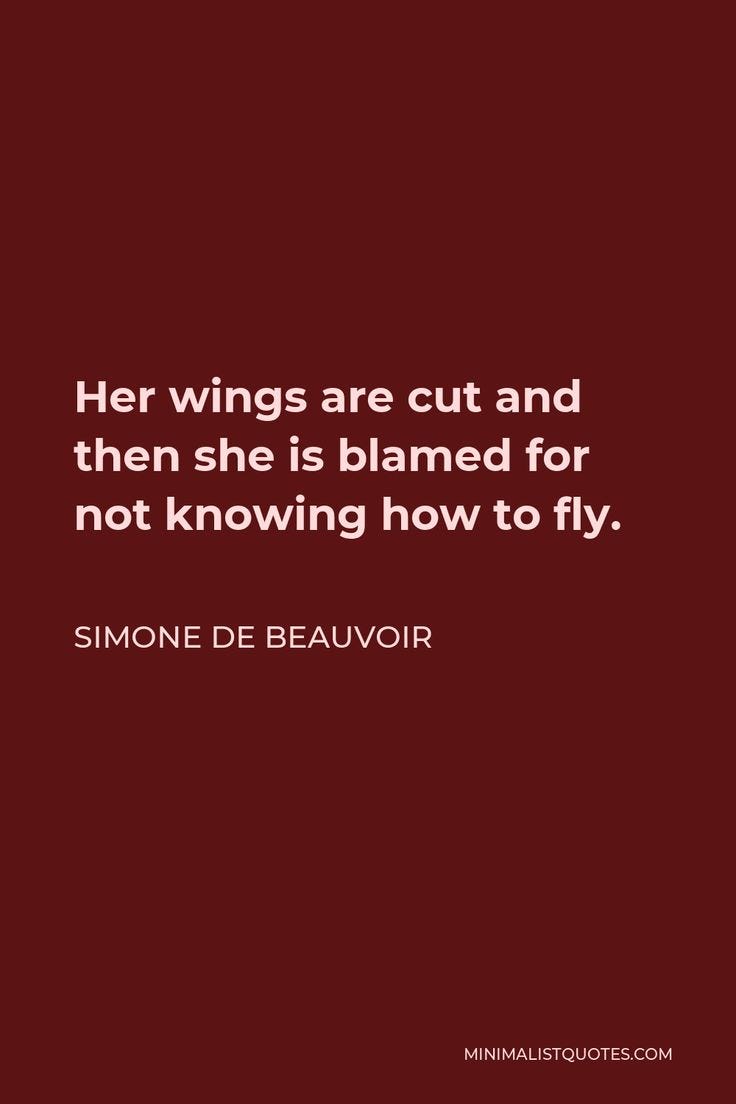
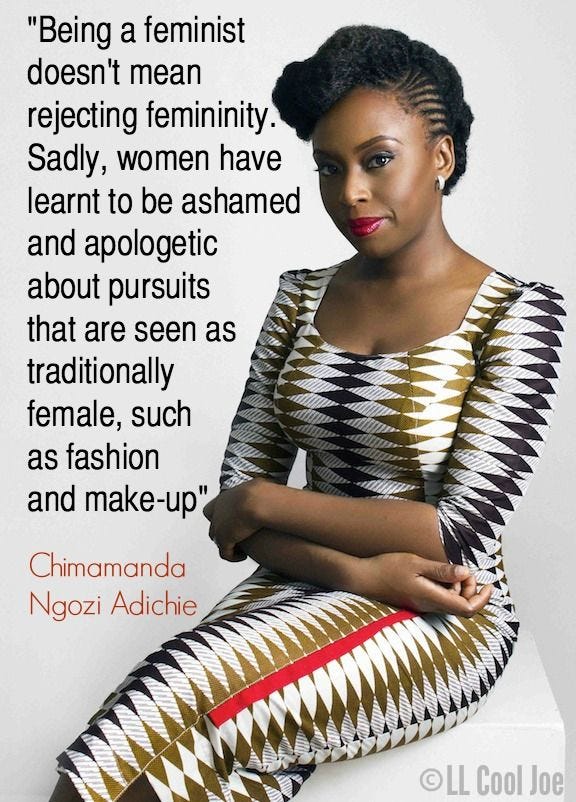
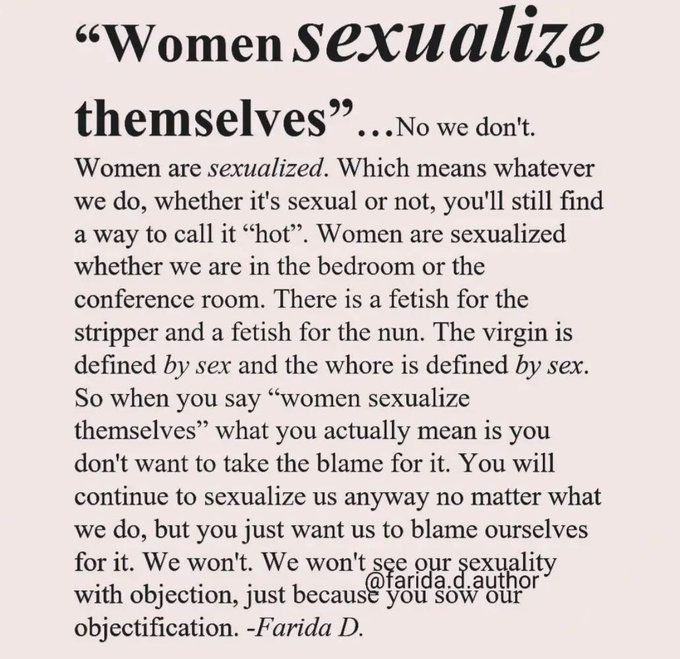

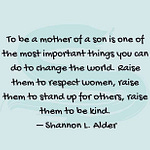


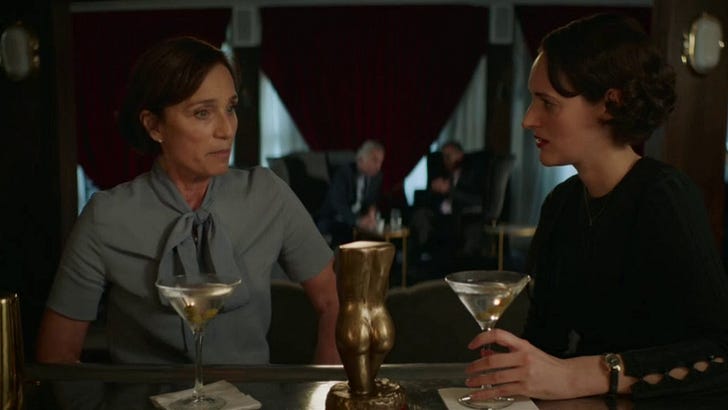


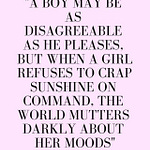
Share this post